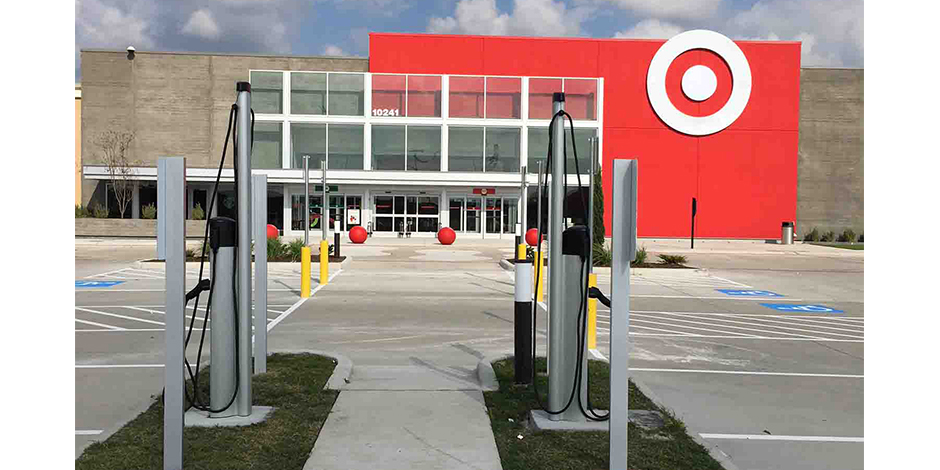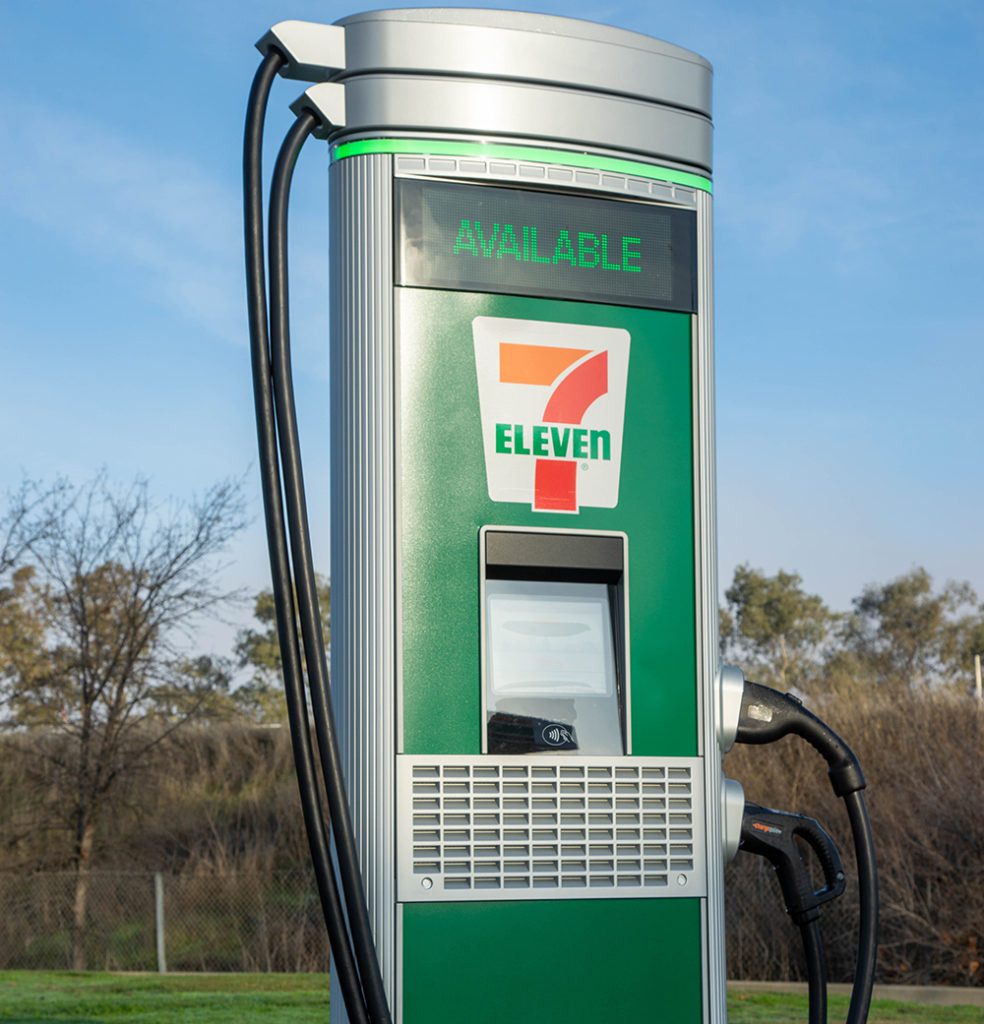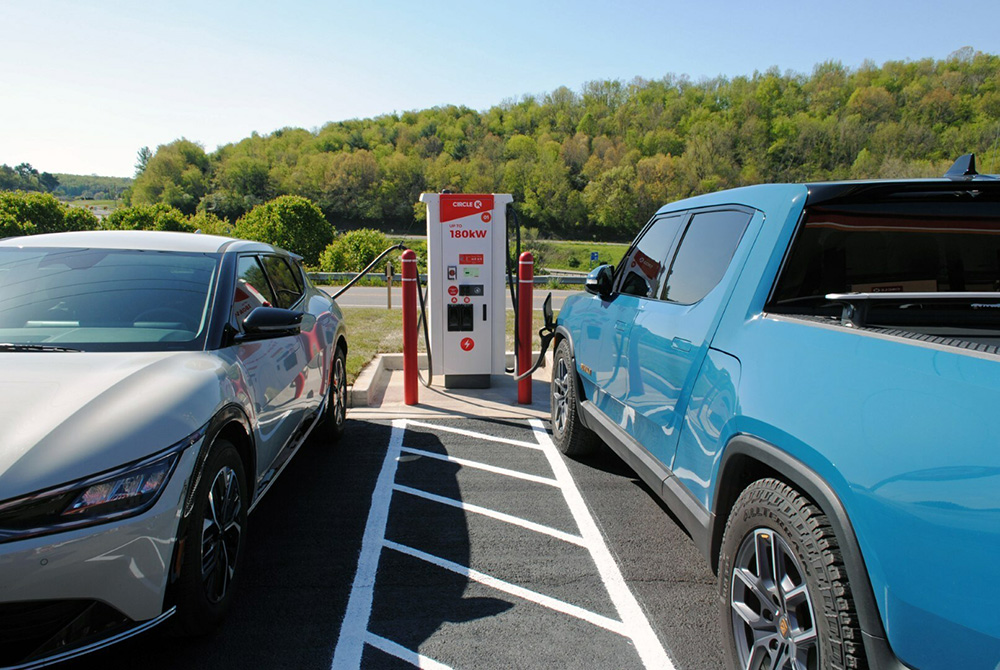[ad_1]
It seems like every day, we read about another company pledging to roll out lots of public charging stations across the country. Automakers, utilities, oil companies, hotel and apartment chains, restaurants and retailers—everybody is (or claims to be) getting into the act. Even your favorite EV pundit abandoned his usual skepticism and gushed that, if all the charging stations currently on the drawing board get built, it should quash the “not enough chargers” bugaboo once and for all (see my Charging Forward column in the October-December 2023 issue of Charged).
However, it turns out that that “if” is a big one. A Consumer Reports study into EV chargers at big retailers has revealed that most of the retailers that have announced plans to install public EV charging stations appear to be in no hurry to do so—and that most retailers aren’t adding any EV charging infrastructure at all.
Consumer Reports reviewed 270,000 sites controlled by 75 retail and fast-food companies, and found that only about 1 percent of the sites offer any EV charging. (The study did not address uptime or reliability.)
According to CR, IKEA is the hands-down leader in the field, offering EV charging at nearly 100 percent of its US locations. Among big box retailers—including Target and Walmart, both of which have announced major plans to offer public charging—no company except IKEA currently offers EV charging at more than 10 percent of its locations.

Among retail categories, big box retailers do have the highest proportion of store locations with EV charging stations—on average, charging is available at 1 out of every 14 big box stores, compared to 1 out of every 15 grocery stores and 1 out of every 40 department stores.
In the grocery sector, Amazon and some regional supermarket chains offer EV charging at over 10 percent of their locations. Supposed environmental champions Trader Joe’s and Aldi offer charging at a measly 10 locations in total.
In the convenience store category, Wawa and Sheetz are leading the pack—more than 10 percent of locations provide EV charging. Larger chains 7-Eleven and Circle K have announced plans to build their own charging networks, but neither currently provides charging at more than 1 percent of store locations.


Few other retail chains offer any public chargers to speak of. According to CR, Kohl’s “has made significant EV infrastructure investments,” and that’s about all the action in the department store segment. Walgreens is “making progress,” while rival CVS offers charging at fewer than 10 store locations.
Discount stores such as Dollar General, Dollar Tree and Five Below “have effectively made no investments in EV charging despite the critical role these companies, with their nearly 40,000 store locations, could play in improving access to rural and under-resourced communities.”
No leading fast-food chain reviewed by CR offers EV charging at more than 1 percent of store locations.
It’s a bit puzzling that more retailers aren’t getting charged up, because they’re leaving money on the table. (To be fair, some may be facing delays due to supply chain issues and the glacial pace of getting utility interconnects.) Many retail stores, which tend to be located near highways and major roads, are excellent sites for public chargers, and the opportunities for increased revenue are documented. One ChargePoint case study found that customer dwell time at a major retailer increased by an average of 50 minutes after a Level 2 charger was installed.
There are various government incentives available to defray the cost of installation—retailers can tap into funding provided by the Bipartisan Infrastructure Law, and take a tax credit of up to 30% of the cost of installing EV chargers. The DOT has a planning tool to help companies with project development.
“There is a lot of investment ongoing to building out EV charging infrastructure and a lot of opportunity to capitalize on a market,” Drew Toher, Campaign Manager, Community & Corporate Engagement at Consumer Reports, told Electrify News. “Retailers that are first out of the gate are likely going to be the ones to reap the increased foot traffic and the increased revenue that comes along with that.”
CR’s Toher urges retailers to commit to—and follow through on—specific timelines for the installation of EV charging equipment, to educate customers and employees about EV charging, and (here’s a critical piece of the puzzle) to ensure that chargers are properly maintained.
Source: Consumer Reports via Electrify News
[ad_2]
Source link
